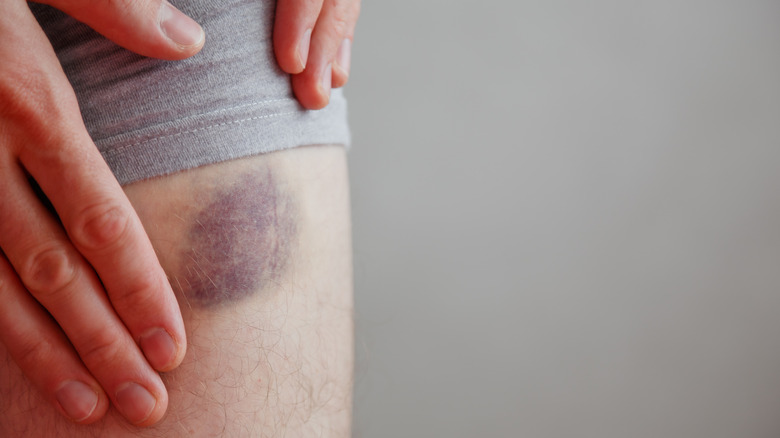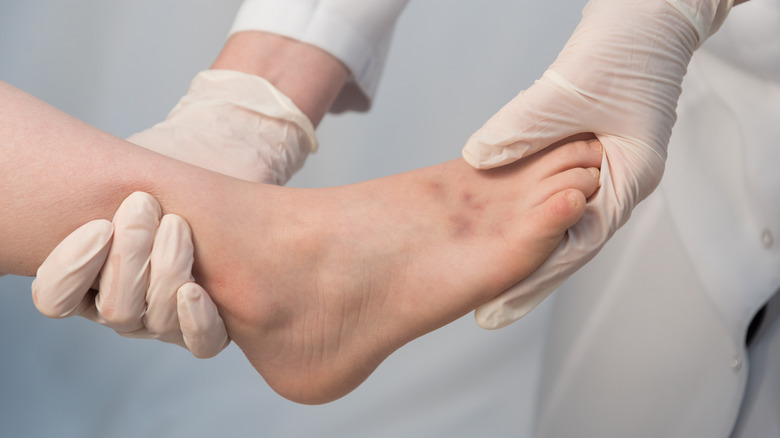What To Do When A Bruise Just Won't Go Away
Just about everyone has developed a bruise at some point. Bruises are caused when you sustain an injury that causes blood to pool under the skin (via Cleveland Clinic). Some people are more prone to bruising than others. Bruises may appear red or purple when they first develop and gradually turn brown, green, and yellow as the area heals. Bruises will typically go away on their own without treatment within two weeks (via Healthline). If your bruise won't go away, there may be another health concern at play.
If you are prone to frequent bruising, it may seem like you have one bruise that won't go away when in reality you just keep sustaining new bruises. Frequent bruising can be caused by abnormal blood platelet levels or blood-clotting problems. This can be due to a health condition or medication. Anticoagulants, antiplatelets, and aspirin all affect blood clotting and can lead to frequent bruising. Some dietary supplements can even thin your blood and make you more prone to bruising.
If you have bruises on your legs or calves that won't go away, you may have a shortage of platelets, which play an important role in blood clotting. Some conditions that can cause this shortage include pregnancy, anemia, HIV, and lupus. Other potential causes include an enlarged spleen, heavy alcohol use, and bacteria in the blood. If you are getting bruises more easily than normal or feel like yours won't go away, visit your doctor to find a solution.
When to worry about frequent bruising
While most bruises will heal on their own, there are some reasons you should worry about a bruise that won't go away. Frequent bruising can be caused by a variety of serious health concerns, including a shortage of platelets, blood clotting problems, and serious injuries (via Healthline). Frequent bruising can also be a sign of leukemia. According to WebMD, you should contact your doctor if you experience swelling and significant pain along with your bruise. You should also visit a doctor if your bruise or bruises occur for no apparent reason, if your bruise if under a toenail or fingernail and did not happen due to an injury, or if the bruise does not begin to improve within two weeks.
If you get a regular bruise, you can use some home remedies to help it heal more quickly. Apply an ice pack to the affected area for half an hour to reduce swelling. You can also take acetaminophen to help with painful bruises. However, you should avoid aspirin or ibuprofen as these medications can slow blood from clotting and prolong the bleeding which can cause your bruise to take longer to heal. After a couple of days, you can begin applying a warm washcloth to the bruise for a few minutes several times each day. This will help the blood get absorbed by the skin more quickly and help the bruise fade faster.


